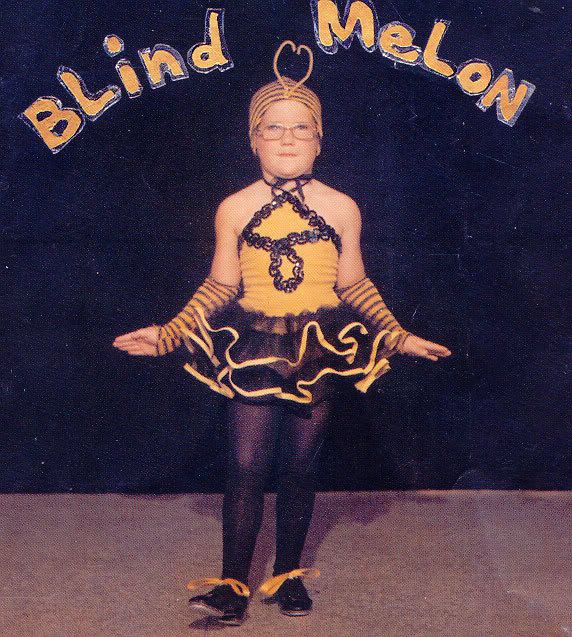Battle of the Blind Willies
Posted: Wed Feb 25, 2009 3:27 am
http://www.youtube.com/watch?v=7R8RuOagzck
Blind Willie Johnson was born in 1897 near Brenham, Texas (before the discovery of his death certificate, Temple, Texas had been suggested as his birthplace). When he was five, he told his father h...
Blind Willie Johnson was born in 1897 near Brenham, Texas (before the discovery of his death certificate, Temple, Texas had been suggested as his birthplace). When he was five, he told his father he wanted to be a preacher, and then made himself a cigar box guitar. His mother died when he was young and his father remarried soon after her death.[1]
Johnson was not born blind, and, although it is not known how he lost his sight, Angeline Johnson provided this account to Samuel Charters: She said when Willie was seven his father beat his stepmother after catching her going out with another man. The stepmother then picked up a handful of lye and threw it, not at Willie's father, but into the face of young Willie.
http://www.youtube.com/watch?v=-S2jxS-4 ... re=related
Born William Samuel McTier (or McTear[1]) in Thomson, Georgia, blind in one eye, McTell had lost his remaining vision by late childhood, but became an adept reader of Braille. He showed proficiency in music from an early age and learned to play the six-string guitar as soon as he could. His father left the family when McTell was still young, so when his mother died in the 1920s, he left his hometown and became a wandering busker. He began his recording career in 1927 for Victor Records in Atlanta[2].
In the years before World War II, he traveled and performed widely, recording for a number of labels under a different name for each one, including Blind Willie McTell (Victor and Decca), Blind Sammie (Columbia), Georgia Bill (Okeh), Hot Shot Willie (Victor), Blind Willie (Vocalion), Red Hot Willie Glaze (Bluebird), Barrelhouse Sammie (Atlantic) and Pig & Whistle Red (Regal). His style was singular: a form of country blues, bridging the gap between the raw blues of the early part of the 20th Century and the more refined East Coast "Piedmont" sound. He took on the less common and more unwieldy 12-string guitar because of its volume. The style is well documented on John Lomax's 1940 recordings of McTell for the Library of Congress, for which McTell earned ten dollars[3].
In 1956, an Atlanta record store manager, Edward Rhodes, discovered McTell playing in the street for quarters and enticed him into his store with a bottle of corn liquor, where he captured a few final performances on a tape recorder. These were released posthumously on Prestige/Bluesville Records as Blind Willie McTell's Last Session.[5]
McTell died in Milledgeville, Georgia of a stroke in 1959.
Blind Willie Johnson was born in 1897 near Brenham, Texas (before the discovery of his death certificate, Temple, Texas had been suggested as his birthplace). When he was five, he told his father h...
Blind Willie Johnson was born in 1897 near Brenham, Texas (before the discovery of his death certificate, Temple, Texas had been suggested as his birthplace). When he was five, he told his father he wanted to be a preacher, and then made himself a cigar box guitar. His mother died when he was young and his father remarried soon after her death.[1]
Johnson was not born blind, and, although it is not known how he lost his sight, Angeline Johnson provided this account to Samuel Charters: She said when Willie was seven his father beat his stepmother after catching her going out with another man. The stepmother then picked up a handful of lye and threw it, not at Willie's father, but into the face of young Willie.
http://www.youtube.com/watch?v=-S2jxS-4 ... re=related
Born William Samuel McTier (or McTear[1]) in Thomson, Georgia, blind in one eye, McTell had lost his remaining vision by late childhood, but became an adept reader of Braille. He showed proficiency in music from an early age and learned to play the six-string guitar as soon as he could. His father left the family when McTell was still young, so when his mother died in the 1920s, he left his hometown and became a wandering busker. He began his recording career in 1927 for Victor Records in Atlanta[2].
In the years before World War II, he traveled and performed widely, recording for a number of labels under a different name for each one, including Blind Willie McTell (Victor and Decca), Blind Sammie (Columbia), Georgia Bill (Okeh), Hot Shot Willie (Victor), Blind Willie (Vocalion), Red Hot Willie Glaze (Bluebird), Barrelhouse Sammie (Atlantic) and Pig & Whistle Red (Regal). His style was singular: a form of country blues, bridging the gap between the raw blues of the early part of the 20th Century and the more refined East Coast "Piedmont" sound. He took on the less common and more unwieldy 12-string guitar because of its volume. The style is well documented on John Lomax's 1940 recordings of McTell for the Library of Congress, for which McTell earned ten dollars[3].
In 1956, an Atlanta record store manager, Edward Rhodes, discovered McTell playing in the street for quarters and enticed him into his store with a bottle of corn liquor, where he captured a few final performances on a tape recorder. These were released posthumously on Prestige/Bluesville Records as Blind Willie McTell's Last Session.[5]
McTell died in Milledgeville, Georgia of a stroke in 1959.
